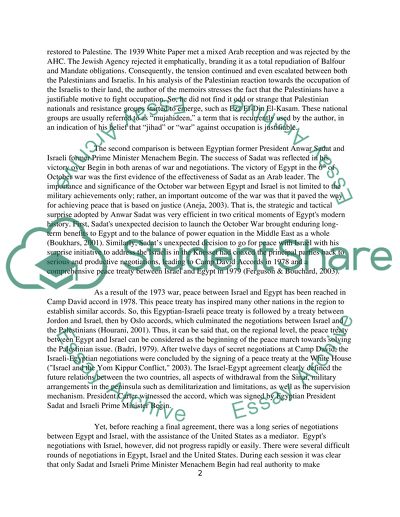Leaders and the Arab-Israeli Conflict: a Comparative Study Research Paper. Retrieved from https://studentshare.org/history/1438039-leaders-and-the-arab-israeli-conflict-how-was-the
Leaders and the Arab-Israeli Conflict: A Comparative Study Research Paper. https://studentshare.org/history/1438039-leaders-and-the-arab-israeli-conflict-how-was-the.


